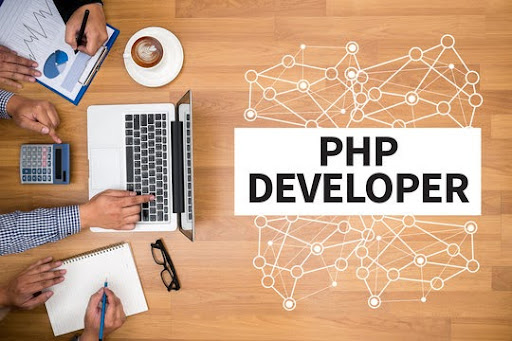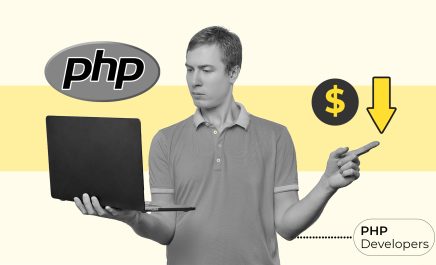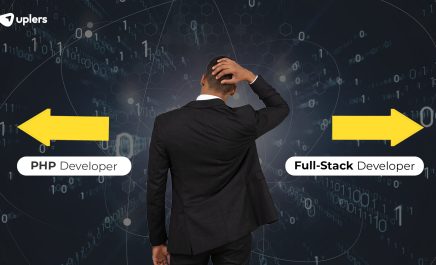Why Top SaaS Companies Still Hire PHP Developers in 2025
- Prachi Shah
- March 22, 2025
- 5 Minute Read
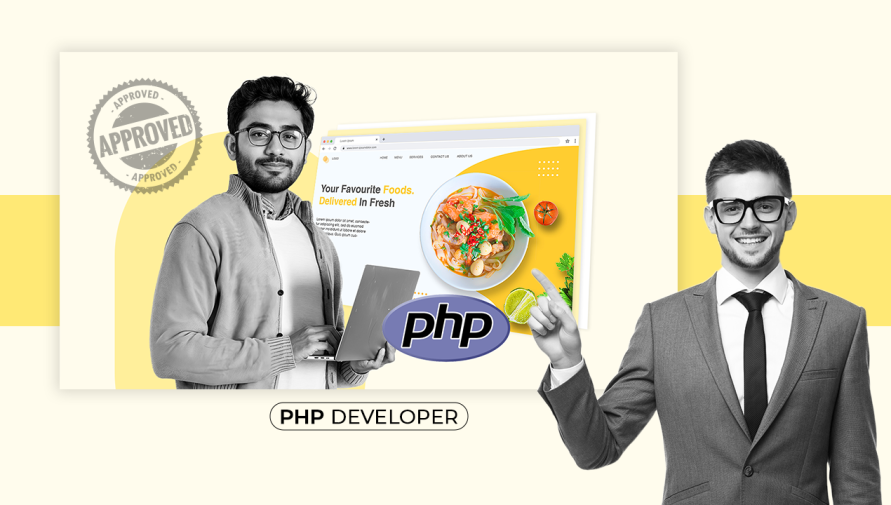
PHP isn’t going anywhere. It’s been powering the web for over two decades, and despite all the noise about “modern” backend technologies, hiring PHP developers in 2025 is still a strategic move for SaaS companies.
Why? Because PHP is fast, scalable, and cost-effective. It runs a majority of websites, including giants like WordPress, Joomla, and Laravel-based applications. SaaS businesses, known for their need for reliability and efficiency, continue to rely on PHP for their platforms.
But wait—didn’t we hear that PHP was “dying”?
Well, let’s clear that up. The reality is that PHP has evolved, and with Modern PHP frameworks like Laravel and Symfony, it’s now more powerful than ever. If you think top SaaS companies have abandoned PHP, think again.
Here’s why they still hire PHP developers in 2025.
The Enduring Popularity of PHP in Web Development
- PHP powers the web – Over 81% of all websites still use PHP in some form. That includes everything from eCommerce platforms to enterprise SaaS solutions.
- It’s everywhere – From WordPress to Drupal, Magento to Laravel, PHP dominates CMS and web applications.
- It keeps evolving – PHP 8+ introduced JIT compilation, improved memory management, and better security, making it a strong choice for modern SaaS architectures.
Why SaaS Companies Still Use PHP in 2025?
Despite the rise of newer programming languages, many SaaS companies continue to rely on PHP in 2025 for its stability, flexibility, and extensive ecosystem. PHP’s ability to integrate seamlessly with popular frameworks and databases makes it a trusted choice for scalable, cost-effective solutions.
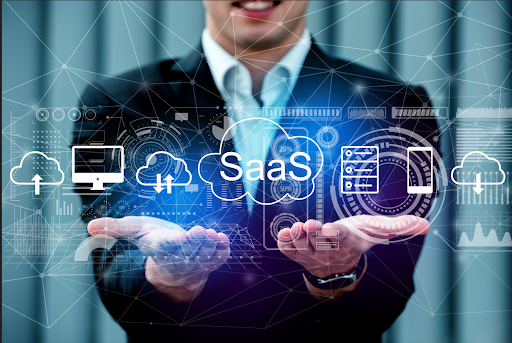
1. Scalability and Performance Enhancements in Modern PHP
PHP isn’t just for basic websites anymore. With PHP 8+, it now delivers:
- JIT compilation, which speeds up execution time significantly.
- Improved memory management, reducing server costs.
- Better concurrency handling, making it a solid choice for PHP for cloud-based SaaS applications.
Even large-scale SaaS products like Mailchimp and Slack rely on PHP at their core.
2. Cost-Effectiveness and Developer Availability
- PHP developers are everywhere – With over 6 million PHP developers worldwide, it’s easier (and more affordable) to find skilled talent.
- Lower development costs – PHP is open-source, meaning no licensing fees for businesses.
- Faster development – PHP frameworks like Laravel and Symfony reduce coding time with built-in solutions.
For startups and scaling SaaS businesses, cost matters. Hiring remote PHP developers in 2025 still makes financial sense.
3. Robust Frameworks for SaaS Development
Modern PHP isn’t just PHP—it’s powered by some of the most feature-rich frameworks available:
- Laravel – The go-to for SaaS, offering built-in API support, authentication, and queue management.
- Symfony – Perfect for enterprise SaaS applications with high flexibility.
- CodeIgniter & Yii – Lightweight yet powerful choices for building scalable products.
PHP frameworks are battle-tested, secure, and built for SaaS-scale applications.
4. Strong Integration Capabilities
A SaaS platform needs to connect with multiple services, and PHP makes that easy:
- Databases – PHP works easily with MySQL, PostgreSQL, and NoSQL databases.
- Payment gateways – Integrates effortlessly with Stripe, PayPal, Razorpay, and more.
- Cloud services – PHP plays well with AWS, GCP, and Azure.
Modern SaaS isn’t built in isolation. PHP makes integration simple and efficient.
5. Security Enhancements and Compliance
Security is non-negotiable for SaaS businesses. The myth that PHP is insecure is outdated—modern PHP has evolved:
- Encryption & secure frameworks – Laravel, Symfony, and CodeIgniter come with built-in security features.
- CSRF & SQL injection protection – Native defences are stronger than ever.
- Regulatory compliance – PHP frameworks support GDPR, HIPAA, and other security regulations out of the box.
A secure SaaS product starts with a secure backend. That’s why PHP is still trusted.
6. PHP for Backend and Server-Side Logic in SaaS
SaaS platforms require a strong backend to handle:
- User authentication & role management
- Data storage & retrieval
- API development & third-party integrations
PHP excels at all of these. Some of the world’s leading SaaS platforms—like Mailchimp, HubSpot, and even parts of Slack—use PHP to manage backend operations.
7. Continuous Improvements and PHP Community Support
Unlike some older languages that fade into irrelevance, PHP has an active developer community ensuring:
- Regular updates & optimizations
- Better structure through PHP-FIG and PSR standards
- A vast ecosystem of plugins, libraries, and tools
Innovation isn’t slowing down in PHP—it’s adapting to modern SaaS demands.
Top SaaS Companies That Use PHP
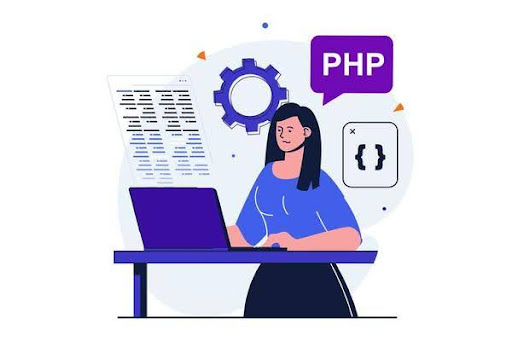
Still not convinced? Here are some top SaaS companies using PHP in 2025:
- Mailchimp – Email marketing giant built on PHP.
- HubSpot – A leading CRM platform that leverages PHP for backend logic.
- Slack – Yes, even Slack uses PHP in its infrastructure.
- Magento – An enterprise-level eCommerce SaaS solution.
PHP isn’t just surviving—it’s thriving in the SaaS world.
Conclusion
PHP has proven to be a reliable, versatile, and cost-effective choice for SaaS companies. Opting to employ PHP developers in 2025 is more than just a precaution—it’s a smart move for businesses that prioritize efficiency, security, and flexibility. SaaS companies need strong, scalable, and effective solutions. Contemporary PHP frameworks such as Laravel, Symfony, and CodeIgniter guarantee that PHP remains a leader in SaaS advancements.
So, the next time someone claims PHP is “dead,” remind them:
- 80% of the web still runs on PHP
- Top SaaS companies still use PHP
- PHP continues to evolve with modern security and scalability features
In 2025, PHP is still very much alive—and SaaS companies know it.
Frequently Asked Questions
Is PHP still relevant for SaaS development in 2025?
Ans: Absolutely. With PHP 8+, modern frameworks, and strong security enhancements, it remains a top choice for SaaS development.
What are the main benefits of using PHP for SaaS applications?
Ans: Cost-effectiveness, scalability, safety, and easy integration with databases and APIs.
How does PHP compare to other backend technologies like Node.js or Python for SaaS?
Ans: PHP is still commonly used in web applications because it offers robust frameworks and has many skilled developers, making development faster and more cost-effective.
What security measures does PHP offer for SaaS applications?
Ans: Built-in encryption, CSRF protection, authentication libraries, and compliance with major data protection regulations.
Is PHP scalable enough for high-growth SaaS platforms?
Ans: Yes. With PHP 8+, cloud integration, and microservices support, PHP can handle SaaS growth efficiently.
Can PHP be used for AI and machine learning in SaaS applications?
Ans: While not the primary strength, PHP can effortlessly integrate with Python-based AI models and APIs to add machine learning capacities to SaaS platforms.

Thank you for submitting the details!
We will keep your information safe. Feel free to contact us with any questions at hello@uplers.com
Please check your email for next steps shared by Robert.
